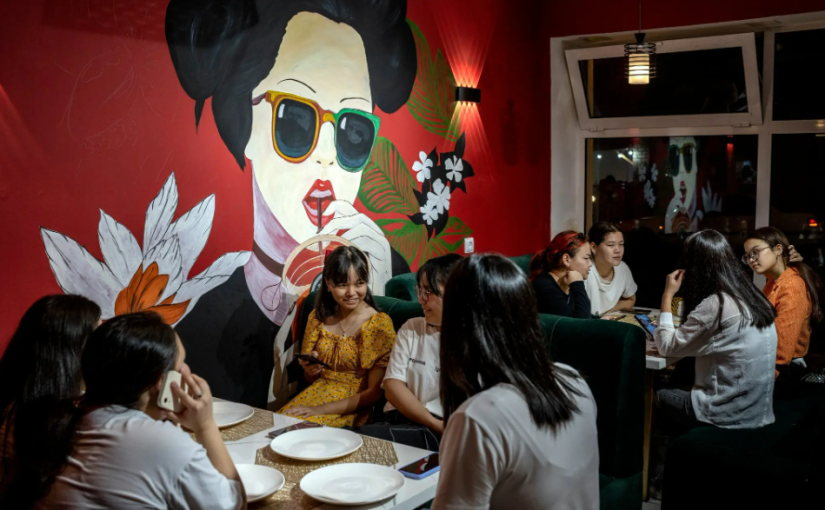这封信的作者是Nazarbayev Intellectual School of Astana in Astana, Kazakhstan17 岁的Fariza Fazyl,她是学生公开信大赛的前 10 名获胜者之一,我们收到了 9,946 份参赛作品。
Dear Ulbolsyn,
You don’t know me, but I know you. I’ve met in a hundred different places. In classrooms, at bus stops, in stories told in hushed voices over tea. I’ve met you in the way your mother’s voice softens when she says your name, as if it’s an apology. I’ve met you in the way your father looks past you, still waiting for the son that never came.
I’ve met you, Ұлболсын, and I have never once envied you.
My name is Fariza. It means “light, precious gem.” A name that stands on its own, one that was given to me not as an apology, but as a blessing. My name is simple. It means nothing but me. No silent wishes for a different child. When I was born, no one folded my name into a quiet, desperate hope for something better.
But you. You were born with expectations stitched into your skin. Your name was the first thing the world ever gave you, and it was never really yours.
Ulbolsyn, Ұлболсын: Let there be a boy.
That’s what they called you. That’s what they wished for when they held you for the first time. Not you. Someone else. And yet, you stayed. You learned to carry the weight of their disappointment with a quiet kind of grace.
In Kazakh culture, names hold profound significance. They often reflect the hopes and aspirations of families. For example, my name held a hope of shining throughout my life. However, a particular naming tradition has persisted, and girls are given names beginning with “Ұл” (“Ul”), meaning “boy.” For instance, names such as Ұлболсын (Ulbolsyn), Ұлтуар (Ultuar), and Ұлжан (Ulzhan). These names translate to “Let there be a boy,” “A boy will be born,” and “Soul of a boy,” respectively. Each one a reminder that their birth was not the one their parents had been waiting for.
And it’s not just here. In India, in China, in so many places where being born a girl is a tragedy, the numbers tell a story we don’t want to hear. In China, for every 100 girls, there are 117 boys. In some parts of India, there are 156. Nature and genetics have it that the ratio of girls to boys should be 1 to 1. However, across the world, parents are getting rid of girls a lot more frequently. Millions of daughters aborted even before they had names.
You survived. But survival is not the same as being wanted.
Not in a country where, between 1905 and 2019, over 75,400 girls were given names like yours — names that apologized for their existence. Not in a world where parents whisper to their newborn daughters, Maybe not now.
I don’t know if the people around you will ever say it. I don’t know if the world will ever make space for your name the way it should have from the start.
But I will say it, and I will mean it.
Ulbolsyn, I am so, so glad that you exist.
Sincerely,
Fariza
Works Cited
Zhulmukhametova, Zhadyra. “Пусть родится мальчик”. Зачем в Казахстане снимают фильм об Улболсын и почему это важно [“Let a boy be born.” Why is a film about Ulbolsyn being shot in Kazakhstan and why is it important?]. InformBuro, 21 Aug. 2020.
Hudson, Valerie, et al. “Surplus males: The dangers of Asia’s preference for sons.” The New York Times, 13 May 2004.
